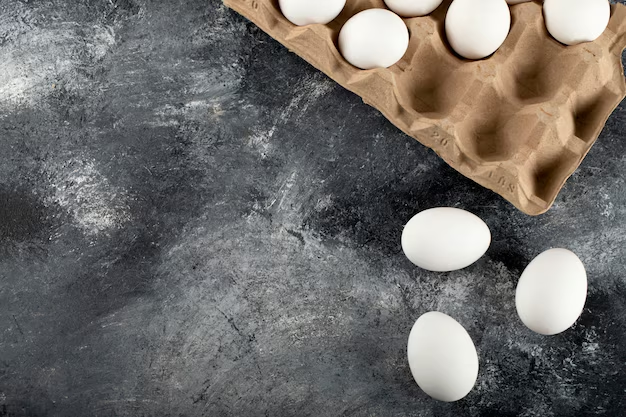How Long Can Raw Eggs Really Last in Your Fridge? 🥚
When it comes to food storage, few items spark as much curiosity—and often confusion—as eggs. They are a staple in many kitchens worldwide, yet questions about their shelf life persist. How long can you safely keep raw eggs in your refrigerator? The answer can be more nuanced than you might think. Let’s delve into this topic and arm you with the knowledge to keep your eggs fresh and your meals delicious.
Understanding Egg Freshness: A Balancing Act
At the heart of egg storage is a delicate balance between safety and quality. Eggs have a natural coating, known as the bloom or cuticle, which acts as a protective barrier against bacteria. This natural defense gradually breaks down over time, affecting both the safety and the quality of the eggs.
Factors Affecting Egg Shelf Life
Understanding the longevity of eggs requires a look at several factors:
- Storage Temperature: Proper refrigeration is key. Cold temperatures slow bacterial growth, preserving both the safety and quality of eggs.
- Humidity Levels: High humidity in the storage environment helps prevent eggs from drying out.
- Date of Purchase: The sell-by or expiration date provides a guideline but understanding the freshness is equally important.
- Handling Practices: Eggs should be handled gently, as cracks can introduce bacteria and accelerate spoilage.
How Long Do Raw Eggs Last in the Fridge?
The USDA recommends that raw eggs remain fresh for about 3 to 5 weeks after being placed in the refrigerator. This timeline hinges on keeping them at a consistent temperature, ideally around 40°F (4°C). But let’s break it down further.
The Role of Expiration Dates
Egg cartons often display dates that guide consumers on the best time to use the eggs. Here are a few pointers on what these dates mean:
- Sell-By Date: This is primarily for retailers and ensures optimal quality rather than safety.
- Expiration Date: This is a more direct suggestion of when eggs should be consumed for best quality.
- Pack Date: Represented by a Julian date, which indicates the day of the year the eggs were packed, can provide a clue about age.
Trust Your Senses
Beyond dates, using your senses can be a reliable way to gauge egg freshness:
- Visual Inspection: Check for any cracks or slimy textures.
- The Float Test: Place eggs in a bowl of water; if they sink and lay flat, they're fresh. If they stand upright or float, they may be degrading.
- Smell Check: A sulfuric or rotten odor is a sign the egg is no longer good.
Storage Tips for Maximizing Freshness
Storing eggs correctly can extend their shelf life:
- Keep Them Cold: Store eggs in their original carton on a refrigerator shelf, not the door, to maintain consistent temperature.
- Avoid Washing: Washing eggs can remove the natural protective coating.
- Position Matters: Place eggs with the larger end up to center the yolk, which helps maintain quality over time.
Other Considerations in Egg Storage
Organic vs. Conventional Eggs
Both organic and conventional eggs can be stored in the same manner, though some consumers report organic eggs have different freshness characteristics.
The Impact of Producers and Packaging
Packaging can play a role in how long eggs last. Some cartons protect against light exposure, which can affect quality. Choose packaging that maintains egg safety.
Eggs Beyond the Fridge
Eggs can also be frozen to extend their shelf life up to a year, though they should always be beaten or separated from the shell before freezing.
Quick Tips for Keeping Eggs Fresh 📝
Here’s a handy list of tips to ensure your eggs stay fresh:
- 📦 Store eggs in their original carton for maximum protection.
- ❄️ Keep at a stable temperature in the fridge, ideally at 40°F (4°C).
- 👃 Use your senses—visual checks and smell tests can prevent spoilage surprises.
- 🥄 Consider freezing eggs if you plan on storing them for longer periods.
- ⏰ Mind the dates but trust your senses for the final say.
Embracing Egg Safety and Quality
Having understood the lifespan of eggs in the refrigerator, incorporating this knowledge into cooking and meal planning becomes second nature. With the variety of factors influencing egg freshness—from temperature to storage practices—being informed is your best bet for enjoying eggs safely.
Concluding Insights: A Fresh Take on Egg Storage
Triggering a fresh, egg-citing culinary experience starts with understanding egg storage dynamics. While dates provide guidance, an attentive approach using sensory checks seals the deal. By integrating these practices into your kitchen routine, you’ll master the art of keeping eggs fresh and safe, ensuring every dish is a true aroma of delight. As you crack open your next meal idea, remember—your refrigerator, when understood well, is the first step in culinary excellence. 🦢🌿

